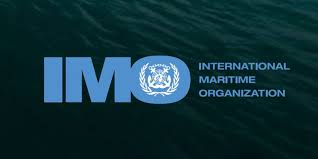
23-May-2025 12:00 PM
Understanding the International Maritime Organization (IMO)
What is the IMO?
The International Maritime Organisation (IMO) is a specialised agency of the United Nations. Its main job is to ensure that international shipping is safe, secure, and environmentally friendly. In simple terms, it makes sure that the ships sailing across the world’s oceans follow rules that protect both people and the planet.
The IMO plays a direct role in supporting the UN's Sustainable Development Goal 14, which is all about preserving oceans and marine resources.
Role and Function
The IMO does not enforce laws by itself. Instead, it creates international rules and standards—mostly dealing with:
Ship safety
Marine pollution prevention
Maritime security
Legal frameworks for shipping operations (like compensation after oil spills)
Once a country agrees to an IMO rule, it must turn that rule into national law and enforce it at home.
History and Membership
Established in 1948 as IMCO (Inter-Governmental Maritime Consultative Organisation)
Became a full UN specialised agency in 1959
Renamed as IMO in 1982
Headquartered in London, UK
Has 174 member countries, including India, which is a founding member
How IMO Is Organised
Assembly: The highest decision-making body, includes all member states. It meets every two years.
Council: Acts like an executive board between Assembly sessions.
Committees: The IMO has five key committees. One of the most important is the:
Marine Environment Protection Committee (MEPC), which deals with rules on ship pollution.
🆕 In May 2025, the MEPC-83 session made a major move to reduce emissions from ships, signaling stronger climate action from the shipping sector.
The MARPOL Convention: Protecting Oceans from Pollution
One of IMO’s biggest achievements is the MARPOL Convention (short for “Marine Pollution”).
Originally signed in 1973 and updated with a 1978 Protocol, MARPOL aims to prevent pollution from ships, whether accidental (like oil spills) or routine (like garbage disposal).
MARPOL has six technical annexes:
Annex I: Oil pollution
Annex II: Noxious liquids (like industrial chemicals)
Annex III: Harmful substances in packaging
Annex IV: Sewage from ships
Annex V: Solid waste or garbage
Annex VI: Air pollution (e.g., sulfur and nitrogen oxides)
India has ratified MARPOL and follows these rules under its own shipping laws.
Conclusion
The IMO stands at the heart of global maritime regulation, ensuring that the world’s shipping industry grows responsibly. In an age of climate change and increasing ocean traffic, its role is more critical than ever. Countries like India, with large coastlines and booming trade, have a major stake in IMO’s work—especially in safeguarding the oceans for future generations.
MCQs
What is the primary role of the International Maritime Organisation (IMO)?
a) Enforce naval operations globally
b) Regulate space missions
c) Ensure maritime safety and prevent marine pollution
d) Oversee aviation safety
✅ Answer: c) Ensure maritime safety and prevent marine pollution
Where is the IMO headquartered?
a) Geneva
b) New York
c) Brussels
d) London
✅ Answer: d) London
Which IMO committee focuses on environmental issues related to shipping?
a) Legal Committee
b) Maritime Safety Committee
c) Marine Environment Protection Committee
d) Technical Co-operation Committee
✅ Answer: c) Marine Environment Protection Committee
How many annexes does the MARPOL Convention currently have?
a) 4
b) 5
c) 6
d) 7
✅ Answer: c) 6
Is India a member of the IMO?
a) No
b) Yes, but not a founding member
c) Yes, and a founding member
d) Yes, but only observer status
✅ Answer: c) Yes, and a founding member